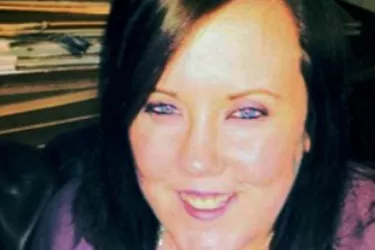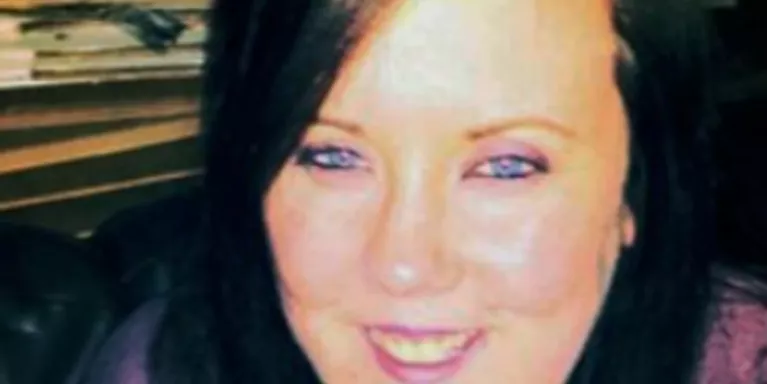Managing mental health in a relationship
Clare blogs about the six key things that help her and her husband manage their mental health.
How do you manage when depression or anxiety are part of a committed relationship? When looking through their distorting lens you can start to feel that there is a problem with the relationship - or with one person within it.
Both my husband and I manage anxiety and depression. We’re lucky in a way as this means we are each able to understand what it feels like to be on the inside of these experiences.
We’ve both needed and given support at different times. Recently I’ve been more vulnerable as I’ve been struggling with SSRI withdrawal symptoms.
"We’ve set ourselves up as a team, dealing with it together."
I have surges of anger and irritability that disguise themselves as reactions to things happening day to day. They show their ugly faces in snippy comments, slamming doors and helpless tears. He recognises these as symptoms. He knows that deep down they’re not my fault. He doesn’t react to them as if they are. I’m starting to think that this is perhaps the most helpful but also the most difficult thing someone can do to support your mental health.
Here are some of the other things that we’ve found work for us.
1. Establishing it as something external to us both - distinguishing between our relationship and our mental health problems.
We’ve set ourselves up as a team, dealing with it together. Viewing it as external to us both stops it being associated purely with one of us - or becoming too intertwined with the rest of the relationship. It isn't physically separate in the same way as a difficult family member or landlord - but approaching dealing with it in the same way seems to help.
2. Finding our own language to help each other understand.
The better Al understands what is going on in my head, the easier he finds it to help. If your partner hasn't experienced depression they might wonder why you can't pull yourself out of it or worry that something they have done has caused it. How can you describe it in a way you will both understand?
"Finding new tools and techniques...can be valuable - and in ways you don't always expect."
I use the description of a negative fog in my mind that magnifies and bounces every thought back at me. Saying 'I feel a bit foggy tonight, I think I'm going to go to bed' will help your partner to understand your needs better than if you say 'I feel like sh*t, I'm going to bed, don't talk to me' - something that will inevitably lead to their worrying that it's something they've done.
3. We try and explain how anxiety and depression affect how we feel and behave - and recognise these as symptoms not reality.
A symptom of my depression is feeling needy and over dependent. Because these are negative experiences one might have in a relationship anyway it's important to identify that they are a result of the depression.
"Sometimes other people can put things into words better than we can."
Saying 'When I'm low, I feel really needy, so I might be a bit dependent and irrational today' sets me up much better to manage than communication purely based on the current feeling of neediness 'Why are you going out today, I really want you to stay in, do you even love me?’
4. Using what works.
It's common to feel as though relationships should flow wonderfully and if they don’t then there’s something wrong. But I don’t think that’s true. Relationships take management - but this also means you have agency. We have power to find techniques to make it work.
We find it helps to write difficult things down. It sometimes feels odd to write a letter from the living room - but it gives us more time to formulate what we want to say and work out how we feel.
."..overall I think we’re stronger, more honest and more resilient as a result."
Don’t feel odd about using whatever works. Finding new tools and techniques to strengthen your couple 'team' can be valuable - and in ways you don't always expect.
5. Enlist each other’s help - and don't disregard it.
When I feel depressed it's hard to imagine I’ll ever feel better. I often need help to be reminded about what feeling better feels like. Al can help. I try and listen to him - even if in the moment I genuinely can’t believe him. Knowing he knows me and wants the best for me means it’s easier to trust him when he is encouraging me to take a shower or attend my appointment. He also helps me notice the warning signs of a relapse and encourages me to look after myself.
6. Reading up on it and asking about it.
Know your enemy. There are loads of useful resources on and offline that help us understand the issues and how we can help each other. We share anything makes sense or describes how we feel. Sometimes other people can put things into words better than we can.
It isn’t easy. There are times when it is desperate, exhausting and miserable. But overall I think we’re stronger, more honest and more resilient as a result of standing shoulder to shoulder when times get hard.


Information and support
When you’re living with a mental health problem, or supporting someone who is, having access to the right information - about a condition, treatment options, or practical issues - is vital. Visit our information pages to find out more.
Share your story with others
Blogs and stories can show that people with mental health problems are cared about, understood and listened to. We can use it to challenge the status quo and change attitudes.

















